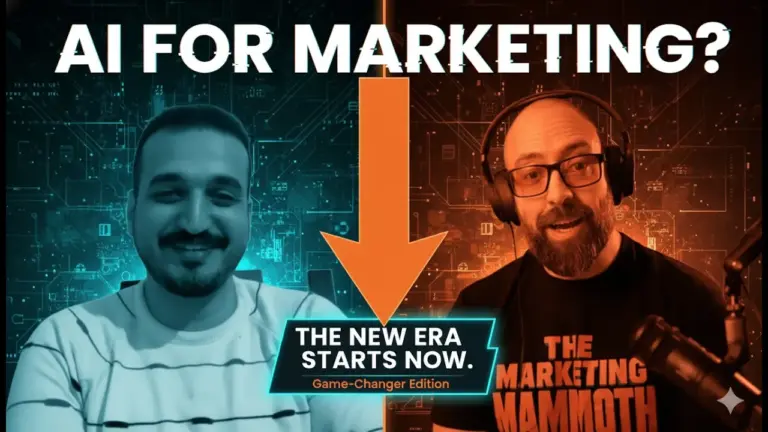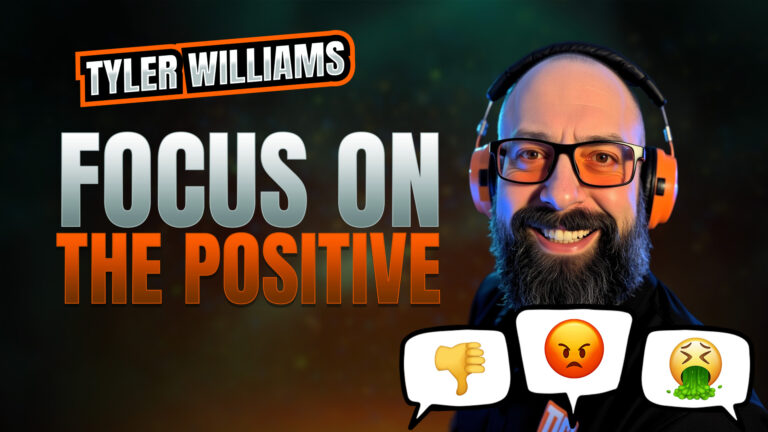Dispelling the Myth: Google is Not Dying, But It Is Evolving
A wave of sensationalism is crashing through the marketing world with one panicked question: Is Google dying?
The team at Mammoth Marketing for Plumbers wants to set the record straight: Google is absolutely not dying. It remains a multi-billion dollar entity and the undisputed heavyweight champion of search volume. However, the anxiety gripping the industry is understandable, as the way businesses used to depend on Google for reliable, low-cost organic leads is fundamentally changing.
The truth is, Google is evolving to integrate Artificial Intelligence (AI), which, in turn, is forcing a massive strategic adjustment for local service companies, especially plumbers. As Mammoth Marketing’s owner, Tyler Williams, often reminds clients, the core issue isn’t Google’s health; it’s the shift in where they prioritize revenue and, critically, how consumer behavior is adapting.
This article breaks down the hype surrounding AI, reveals why chasing new platforms is premature, and details the essential strategies plumbers must adopt to secure high-quality leads in this new environment.
A Strategic Approach: The Case for Behavior-First Marketing
In the face of technological upheaval—specifically the rise of platforms like ChatGPT, Claude, and Gemini—many marketing firms are rushing to sell expensive “AI ranking” packages. They claim Google’s demise is imminent and that budget dollars must immediately be diverted to these new platforms.
Mammoth Marketing advocates for a Behavior-First Marketing philosophy. This means a business must analyze and track the actual behavior of its target market before making dramatic shifts in budget allocation. Rushing to adopt a new platform carries significant risk: it means sacrificing proven opportunities for unverified potential.
For local service businesses like plumbing, the market hasn’t demonstrated the necessary shift to warrant a panic. Tyler Williams and the Mammoth crew often reference critical industry data demonstrating the stark reality: when measuring conversion attribution, data shows that only $0.2\%$ of leads are currently being attributed to AI platforms.
This fractional conversion rate—two-tenths of one percent—simply does not justify redirecting significant funds or energy away from Google, where the vast majority of high-intent searches still take place. As Tyler Williams wisely advises, “A market segment that accounts for less than $1\%$ of your conversions should not take up more than $1\%$ of your marketing energy.” Chasing the AI gold rush now is irresponsible; waiting for verifiable user behavior data is responsible strategy.
Why Google Retains Its Grip: Conversion Friction in AI Platforms
The reason consumers aren’t rushing to chatbots to find a plumber is rooted in the psychology of emergency and high-intent purchasing. When a homeowner needs a plumber, they are looking for trust, speed, and validation.
Current AI platforms consistently fail to deliver the essential conversion-focused elements that Google has perfected:
Lack of Social Proof: AI results often deliver a list of names without the crucial five-star ratings, review snippets, or Google Guarantee checkmarks that establish immediate trust.
High Friction CTAs: Searching on a chatbot means copying a phone number or manually navigating a URL. Google provides instant, one-click Call-to-Action (CTA) buttons directly on the search results page.
Missing Context: Google’s ecosystem (LSA, Map Pack) provides immediate, relevant context: service area, operating hours, and verified status.
A homeowner in crisis prioritizes the path of least resistance. Google provides the quickest path from search to hire. While the underlying search signals used by AI and SEO may share similarities, the current user experience on chatbots is simply inferior for urgent service needs. Therefore, Google retains its dominance for high-value local commercial searches.
Following the Money: Why Organic SEO is Being Deprioritized
The strategic move Google is making is not about succumbing to external competition; it’s about controlling its own revenue stream. As a publicly traded company, its primary directive is to ensure the “Graph Goes Up.”
This strategic imperative dictates the current layout of the Search Engine Results Page (SERP):
Local Service Ads (LSA): Sits at the absolute top, prioritized due to its performance-based, high-intent nature.
Pay-Per-Click (PPC): Directly below LSA, capturing additional ad spend.
AI Overview: Google’s internal answer box.
Organic SEO: Pushed far down the page, often below the fold.
Google is not incentivized to provide free leads. By strategically burying organic SEO results, Google incentivizes businesses to invest in its paid advertising products—LSA and PPC—which are the primary drivers of its profit growth. The challenge facing plumbers is clear: the SEO Gold Rush Is Over, and the priority for visibility now rests firmly with paid placements.
The New Strategy: Building “Mental Real Estate”
Given the strategic demotion of organic search, plumbers must fundamentally change their approach to lead generation. Relying solely on SEO for survival is no longer a viable or sustainable strategy.
Mammoth Marketing asserts that the goal is no longer just ranking for a keyword; it is ensuring the customer searches for the plumber by name.
This is the principle of establishing “Mental Real Estate.”
Mental Real Estate is achieved when a plumbing company becomes the recognized authority and household name in its service area. When customers search for the company directly, engagement metrics soar—they spend more time on the website, watch more videos, and click through more pages. This high engagement sends strong, positive signals to Google, often resulting in accidental, powerful ranking improvements anyway.
The lead generation stack must now be viewed as two distinct types of effort:
| Lead Generation Type | Strategy/Focus | Example Tactics |
| The Back Foot (Reactive) | Lead Aggregation. Waiting for the customer to have a problem and search for a solution. | LSA, PPC, Map Pack Optimization. |
| The Tip of the Spear (Proactive) | Brand Building. Introducing the company to prospects before they have a problem, establishing trust and recognition. | Community Events, High-Visibility Billboards, Social Media Ads (Meta), Direct Mailers. |
The most successful plumbing businesses today are treating Brand Building as the Tip of the Spear, using it to create mental real estate that drives the high-quality, non-price-sensitive customers who then naturally seek out the company’s name on Google (the Back Foot).
Partner with Mammoth Marketing for a Future-Proof Strategy
The marketing landscape demands continuous adaptation. While Google is not dying, the established rules for getting “free” leads are long gone. The savvy plumber must focus on user behavior, master high-conversion paid search (LSA), and commit to building an indispensable brand that transcends the search engine.
If your current marketing strategy is heavily reliant on antiquated SEO tactics and you’re ready to shift your focus to high-performance, diversified, and brand-centric lead generation, the team at Mammoth Marketing for Plumbers is here to partner with you.
Schedule a consultation with the Mammoth Marketing team today! Let us take a look at your current strategy and provide a clear roadmap detailing what your business needs to focus on for sustainable, profitable growth.








